Empowering Real Change
Article By Purbasha Ghosh
posted by Kurush Dordi, May 3, 2017
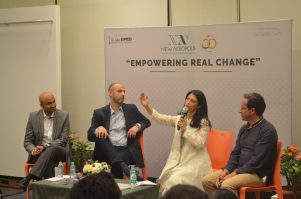 Few amongst us can deny a ubiquitous yearning for change – socially, politically, ecologically, spiritually and a myriad other dimensions. Unfortunately, this longing seldom manifests beyond vehemently voicing the already well-recognised need for change or deluging the social media space with our postulates of it. Real change, nevertheless, continues to elude us. Intimidated by the apparently enormous effort essential to effect change, we succumb to our instinctive resistance to change resigning to an endless array of excuses – resorting to blaming destiny, external circumstances, or political situations, among others.
Few amongst us can deny a ubiquitous yearning for change – socially, politically, ecologically, spiritually and a myriad other dimensions. Unfortunately, this longing seldom manifests beyond vehemently voicing the already well-recognised need for change or deluging the social media space with our postulates of it. Real change, nevertheless, continues to elude us. Intimidated by the apparently enormous effort essential to effect change, we succumb to our instinctive resistance to change resigning to an endless array of excuses – resorting to blaming destiny, external circumstances, or political situations, among others.
Noble intentions notwithstanding, it is unambiguous that quick fix solutions are often ineffectual to cause real change and the widespread superficial, fragmented approach is not sustainable over any consequential duration. The unsuccessful attempts towards realizing real changes are seldom investigated constructively, beyond the surface. Instead, we give in to our inherent tendency to despair. And this atmosphere of hopelessness discourages our further endeavours towards change and aggravates the situation into a vicious cycle. The situation is redolent of the maxim “the pathway to hell is paved by good intentions”.
To break free of the shackles of circumstantial constraints and corrosive despondency that paralyze our potential to initiate change, it is worthwhile to examine the works of a few who have overcome trammelling challenges to do their part to participate in creating real and sustainable change. This past January, New Acropolis Cultural Organization hosted an insightful panel discussion, at the Express Gallery at Nariman Point (Mumbai), bringing together three engines of effectual change in diverse arenas, Sonam Wangchuk, Zarina Screwvala and Yaron Barzilay.
SONAM WANGCHUK
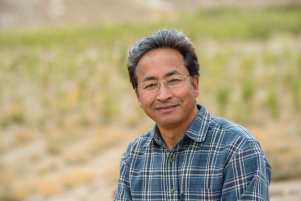
Sonam Wangchuk (Founder – SECMOL, HIAL), is a name synonymous with revolutionary change in the landscape of education and sustainability, in Ladakh. This unassuming 2016 Rolex Award Laureate has leveraged his vocation as a mechanical engineer, persistently over the past three decades, to spearhead innovation at SECMOL (Students’ Educational and Cultural Movement of Ladakh), working alongside students, in projects such as low cost passive solar powered buildings and the ice stupa artificial glacier project for efficient fresh water harvesting. His latest undertaking is the founding of HIAL (Himalayan Institute of Alternatives in Ladakh), aimed at transforming education to go beyond chalk, talk and paper. Instead, his vision is to foster hands-on application of knowledge. Sonam confesses to being a “victim of the prevalent education system” and goes as far as allegorising the government education system as “sixteen years of captive listening”.
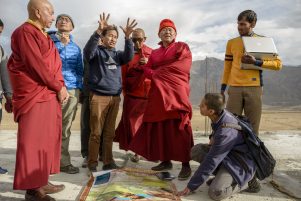
Sonam Wangchuk, His Holiness Chetsang Rinpoche (hat), Yie-Ru Chiu ( permaculture expert, blue down jacket), Suryanarayanan Balasubramanian (engineer laptop), Swati Negi (architect, women in blue jacket), and lamas at the future building site of the University.
Sonam Wangchuk had a cheerful childhood amidst mountains, rivers, forests and wildlife in a pristine, secluded village of just four households in Ladakh. He considers himself fortunate to have been able to escape the regimens of structured schooling until he was eight and half years old. Despite the late onset of formal schooling, Sonam’s most impressionable, pre-school years were profuse with learning, absorbing real-time, what many of this generation know only from the pages of a textbook. He cites the subsequent formal schooling program as a setback that inhibited the realization of the real potential of his formative years. Sonam who remained perplexed for most of his schooling years, was left enchanted, by a chapter on Optics in Grade XI, and his fascination propelled him to pursue Mechanical Engineering, despite strong discouragement from his father due to lack of employment opportunities. As a result, resolute Sonam ventured to earn the cost of his own engineering education by offering Science and Mathematics tutoring to school students, at which time he came face to face with the lamentable state of the government schooling system.
He was troubled by the rampant failure of bright young minds to score passing marks in school examinations, and the irrelevance of the syllabus to the isolated Ladhaki context. At an age when most teenagers and young adults engage in fantasizing of high flying careers, Sonam surmised that it is vital that he contributes to “where he was needed rather than chase what he needed”. Thus, while Engineering remained his first love, educational reform was a louder cry, a calling that was irrepressible.
His incessant efforts to overhaul the methods of imparting education payed off and the proportion of students failing matriculation plummeted to 25% from an absurd 95%. The results though encouraging, were not satisfactory to Sonam, who subsequently launched a school especially for students who were rejected by conventional schools, due to recurrent failures. Now, equipped with decades of experience in educational reform, his next stop is HIAL, a university to educate and empower students to address the need for sustainable change, congruent to the temporal and geographical context. Sonam has pledged his entire prize, conferred by the prestigious Rolex Foundation, as seed funding towards this vision.
ZARINA SCREWVALA
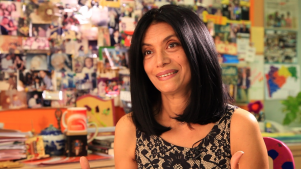
Zarina Screwvala (Co- founder – UTV, Swades Foundation), pioneered the television revolution in India. Her illustrious multi award adorned career, spanning a quarter of a century, has made her a household name. After divesting from UTV, Zarina embarked upon an ambitious dream of “lifting a million people out of poverty over the next ten years.” Meticulously, an area of over 3000 square kilometres in South Raigad (Maharashtra, India) was delineated, and a talented team was assembled to manifest the vision through accessible schooling, vocational education, elementary healthcare, gainful engagement and sustainable capacity building. That was the conception of Swades Foundation, and the rest as they say was history.
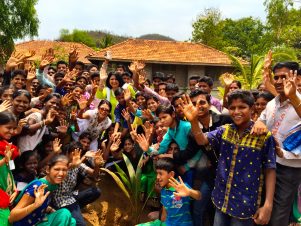
While contending with the unnerving possibility of divesting from UTV five years ago, Zarina Screwvala serendipitously chanced upon a school of philosophy called New Acropolis. She fondly reminisces an epiphany, as she stumbled upon a quote in a non-descript nook of the school: “When you let go of who you are, you become what you might be.” Astonished by its pertinence to her predicament, it propelled her to confront the real reason of her reluctance to dissociate with UTV as an underlying fear, or insecurity; the prospect of letting go of her life’s work petrified her. By acknowledging the need to conquer this anxiety, she parted ways from UTV in just one week.
As she deliberated over her options post-UTV, Zarina sportingly leapt into the formidable and ambitious philanthropic vision of “lifting a million people out of poverty,” suggested by her husband Ronnie. The Screwvala duo travelled extensively through the next year, traversing the length and breadth of rural India, confronting the real face of poverty and its brutal severity, in their attempt to comprehend the magnitude of the problem and to ascertain feasible approaches to combat it. Contrary to popular perception, they discovered that poverty originated in the mind, that “poverty is the death of aspirations”.
Therefore, Swades seeks to empower the underprivileged, to uplift themselves out of poverty. She is cognizant that “there is no silver bullet to poverty alleviation.” It requires a total and holistic involvement, and emphasises the need to have an innovative exit strategy as one of the key constituents of any sustainable philanthropic undertaking.
Her painstaking efforts have started bearing fruits and she beams as she recounts the everyday heroes of her project: A widow who learnt sewing, seamstressing her way out of poverty and emanating the skill and confidence to fellow women; A teacher that volunteers two months of his time to an annual grade X resident coaching program, prior to crucial board exams; An elementary healthcare worker whose vigilant care has saved countless lives due to prudent and timely intervention. Slow but surefooted Swades has come a long way and inches closer towards realising its vision.
Today, Zarina is conscious of the wonderful alliteration between her twin passions – philanthropy and philosophy. They refer to the love of people and the love of wisdom respectively, complement each other beautifully, allowing for the exoteric and the esoteric worlds of an individual to blend seamlessly and purposefully.
YARON BARZILAY
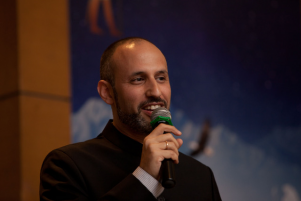
Yaron Barzilay (National Director – New Acropolis Cultural Organization) is a specialist of Eastern and Western philosophy and has authored several investigative works through his two decade long journey, related to practical philosophy, exploring timeless universal concepts relevant and applicable in daily life. After the success as head of the branch of New Acropolis in Jerusalem, he seized the opportunity to found New Acropolis in India. Under his leadership, NA spearheads numerous initiatives to foster social and ecological responsibility demonstrating that philosophy, in contrast to the prevalent notion of being a strictly intellectual faculty, has the ability to bring about intense, real and sustainable change.
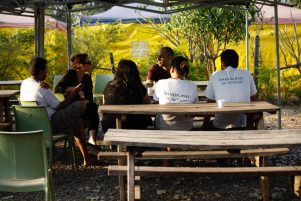
After completing his obligatory national service in his native Israel, Yaron Barzilay worked to gather money for a much anticipated visit to India, that he dreamed of a child. Expecting a spiritual awakening, he remembers being disappointed with the chaos of Mumbai, vowing never to return. As providence would have it, Mumbai has been his home for the last decade and today he is in love with the city. After his India sojourn, Yaron returned to Israel and took up a tv production assignment, where by happenstance, while producing a show about spirituality, he found his teacher, the National Director of New Acropolis in Israel. The momentous meeting soon lead to the realization that the perpetual feeling in his heart, that there was something missing, the relentless search for that elusive element, was his quest for meaning.
He was enchanted that in New Acropolis, no answers were imposed on him; instead he was encouraged to ask questions and reassured that his search was legitimate. He explains that the word Acropolis translates to ‘the higher city’. Across ancient civilizations, it was customary to first establish the centre of a city, the seat of the sacred, on higher ground; the rest of the city was built peripheral to the consecrated citadel – demonstrating the aspiration that everyday activities be pivoted to a spiritual center. Therefore, New Acropolis is a metaphor to revive that aspiration for a higher direction, which Yaron explains, is intrinsic to every individual and fundamental to the human experience. This eternal pursuit for truth, beauty, justice, goodness is an essential element of life. Minus these virtues, life is devoid of meaning. He conjects that meaning and direction are the two crucial elements that are vital to accomplishing and empowering real change.
EMPOWER CHANGE
Their stories unequivocally are an inspiring start towards an elementary comprehension of the effective approaches to empower consequential sustainable change but the attempt would be futile, if one falls short of investigating the various challenges and obstacles likely encountered in such a pursuit.
Sonam Wangchuk traces these impediments to the thoughtless and insensitive onslaught of the environment since the Industrial revolution. He cites statistics to substantiate the outrageous eradication of wildlife, their numbers dwindled to half, in diametric contrast to the explosive growth of human population, in the past forty years. The solution, according to Sonam, rests in starting small: educating individuals, in remote villages and then disseminating the changes outwards to a wider sphere. He alludes to the importance of pausing and introspecting on the direction to which our activities are propelling our planet, underscoring the dire need for human civilization to learn to distinguish between cleverness and wisdom. He explains cleverness as the attitude that when you can do something, you do it because you can. Instead, wisdom implies that “you can do many things, but you would choose not do many of those, and do only certain things…Our future lies in human beings choosing what they want to do, rather than be blown to what they can do.”
Zarina Screwvala echoes with Sonam on choosing wisely, adding that the widespread feeling of disconnectedness emerges from the loss of meaning in contemporary times. The Zoroastrian emblem of the Farohar that depicts the human obligation to choose is her favorite insignia to substantiate her opinion. She believes that it is of immense importance that an individual’s choices are aligned with the source of meaning and happiness in life.
Yaron Barzilay offers a philosophical take on the barriers that we encounter. He refers to the idea of Post-Truth, selected by the Oxford Dictionary as the 2016 Word of the Year. He elaborates that it indicates the enormous erosion of meaning and direction of life, and expresses dismay at the suggestion that Truth is no longer considered relevant or consequential. This is preposterous and contrary to the legacy and wisdom of our ancestors who bequeathed us the profound aphorism Satyamevajayate – Truth alone triumphs. Yaron identifies that the greatest challenge is that the human race today, associates so much significance to the external superficialities that the ties with the inner self stand severed. He reminds us that the word “education” has Latin origins that meant “to draw out” from within. The irony of this, when compared to the present day system of education, where much of the discourses are imposed exogenously, is inescapable. He cautions that only the truth is sustainable, concurring with Sonam that there is no superficial mass solution; that genuine lasting change, originates at the individual level.
Zarina offers further insight into specifics of the endemic and systemic difficulties that beget despondency and despair. She ascertains that it stems from cynicism – the anxiety that our attempts to change with be rendered futile. But she equates cynicism to an abysmal form of mental poverty. While partnering with corporate and government organizations to advance the outreach of her philanthropic venture she learnt that beyond the apparent clash of business interests and Corporate Social Responsibility, as recently mandated legally, there lies synergy and sustainability. And it is reassuring that Corporate India recognizes this mutual symbiosis, and takes this obligatory responsibility seriously with genuine benevolent intentions. There is a similar fraught relationship between Government agencies and rural poverty alleviation. According to her, it is not the lack of vision but the flawed methodologies that result in the deplorable state of affairs and the colossal trust deficit that exists between the benefactor and the intended beneficiaries of government schemes. She also accentuates that the role of an NGO like Swades is to bridge this trust deficit.
Sonam insists on the possibility of capitalizing on the structure of the education system. He articulates that in its present avatar, the education system doesn’t instill a culture of making informed prudent choices. It is the need of the hour for our system to empower youth to make choices. The normative, regimental approach of instructive discourses is detrimental to inculcating this ability to choose. Thus reconstructing the system must begin at the very root and encourage the students to make responsible choices, averting injurious imprints on the environment and going a step forward to nurture it.
Yaron maintains that there is a need to be pragmatic about anticipations from external sources and that profound change must be fostered at the individual level. In his opinion, philosophy is an avenue to define and discipline oneself, to recognize one’s own individuality, in contrast to identifying with the personality, the ever-changing masks. In what may appear to be a paradox, the degree of connectedness to one’s inner self closely correlates to his empathy towards others, he explains. And he insists that one’s individuality reverberates with the ethics he identifies with, not the ones mandated by social or legal statutes, but the ones he believes to be right in all his integrity. He disparages the culture of instant gratification as fueling the insatiable appetite for superficial and material pursuits, drifting the individuals focus from his inner compass. One’s efforts to accomplish change is successful only when the recognition for the need for change arises from this inner sanctum and is directed by the inner compass.
Professor Jorge Angel Livraga, the founder of International Organization New Acropolis, once made an insightful observation: “The more you think about the other, the less you think about yourself”. Perhaps, there lies the true ability to choose to love, and to care about, others. Philosophy, philanthropy and wisdom. In an interesting way these three champions of change bring together, in sublime synergy, an inner search which is responded to by actual action. And, could there be a better place to begin than as indicated by the Father of our nation, “Be the change you want to see in the world?”
Related posts:
Permissions required for the publishing of this article have been obtained
Article References
A recording of the panel discussion is available to view at acropolis.org.in/2017/01/12/panel-discussion-on-empowering-real-change-2/

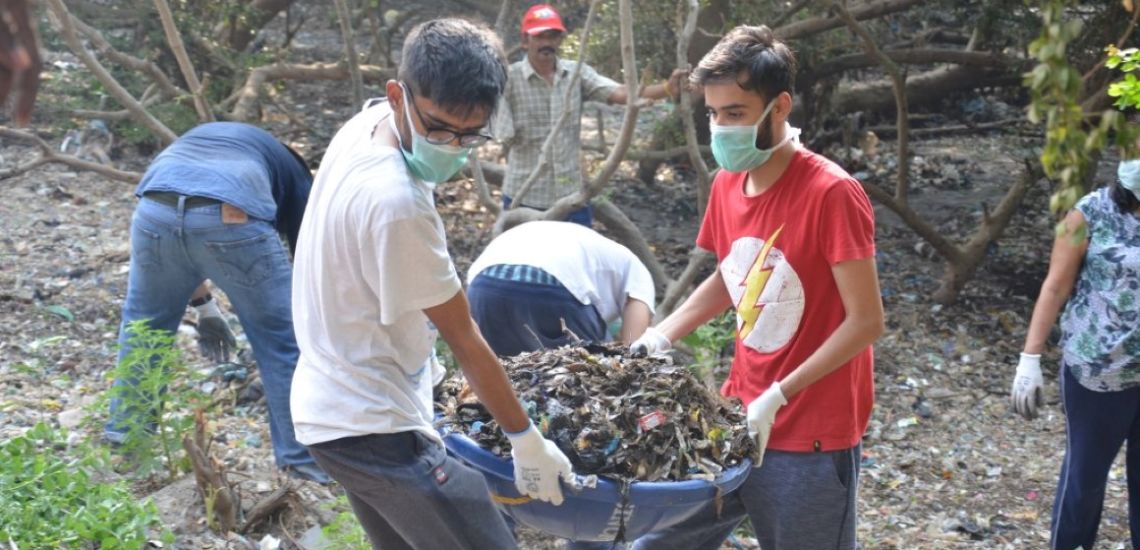

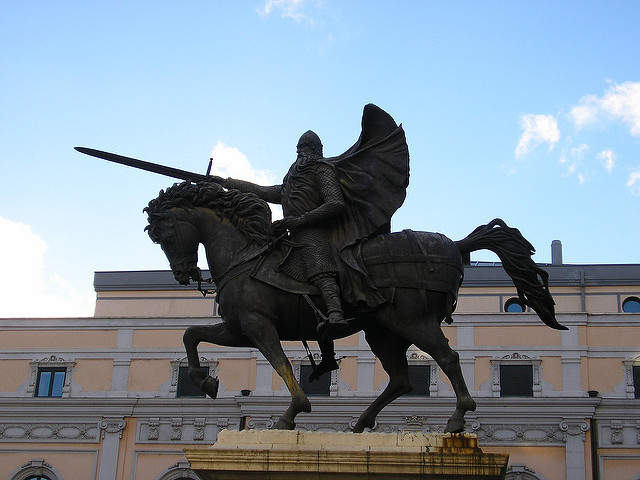
What do you think?